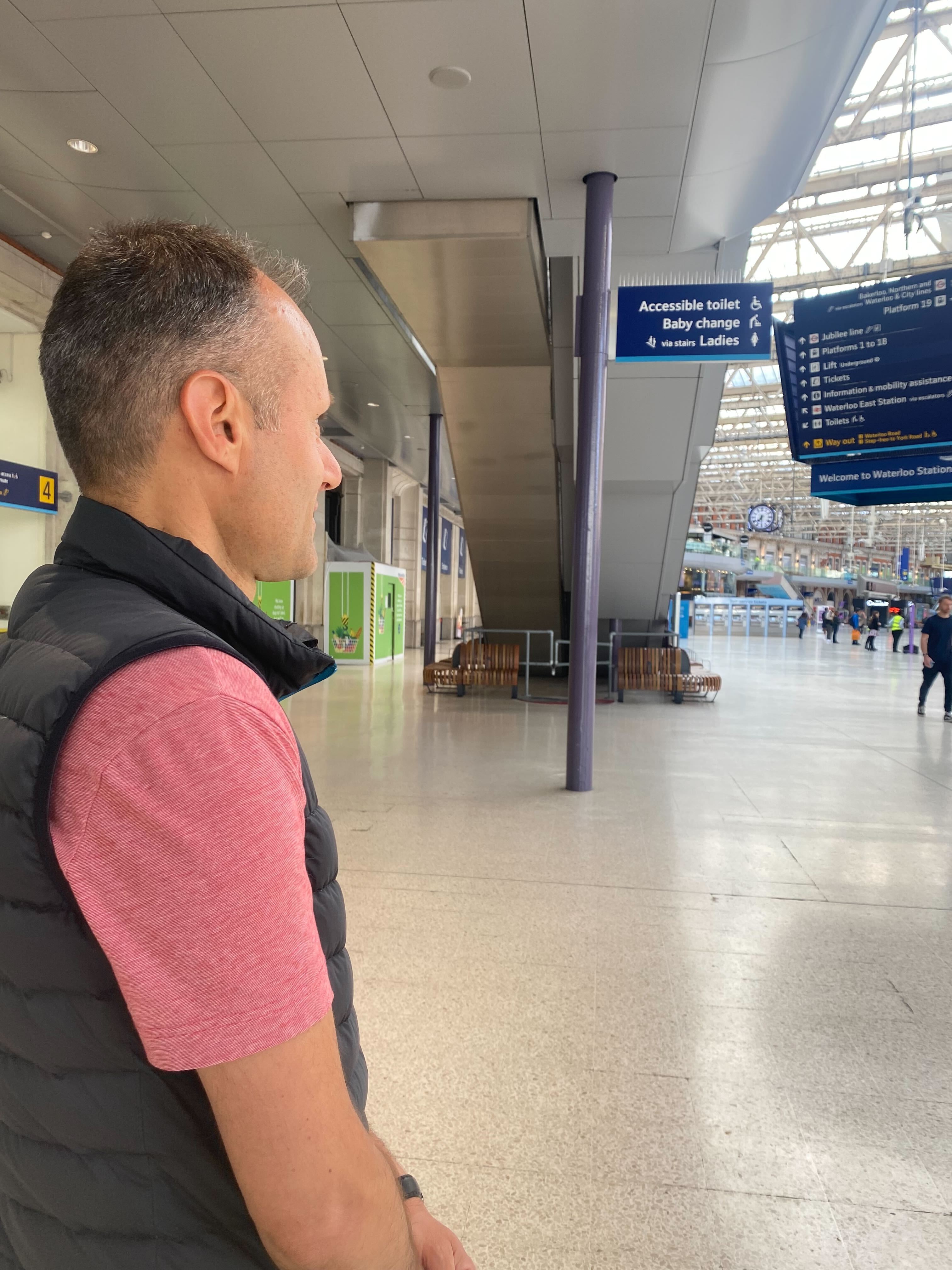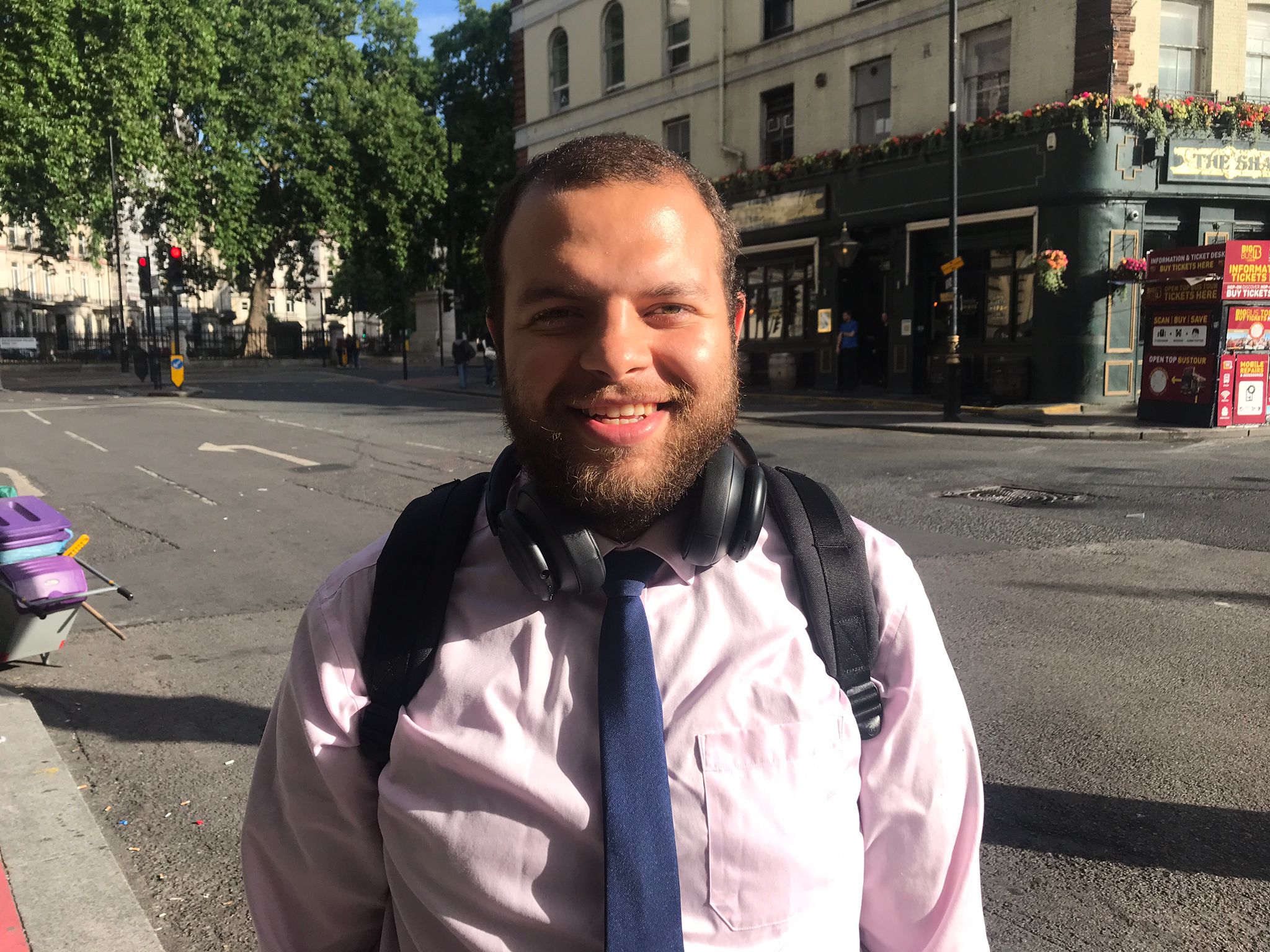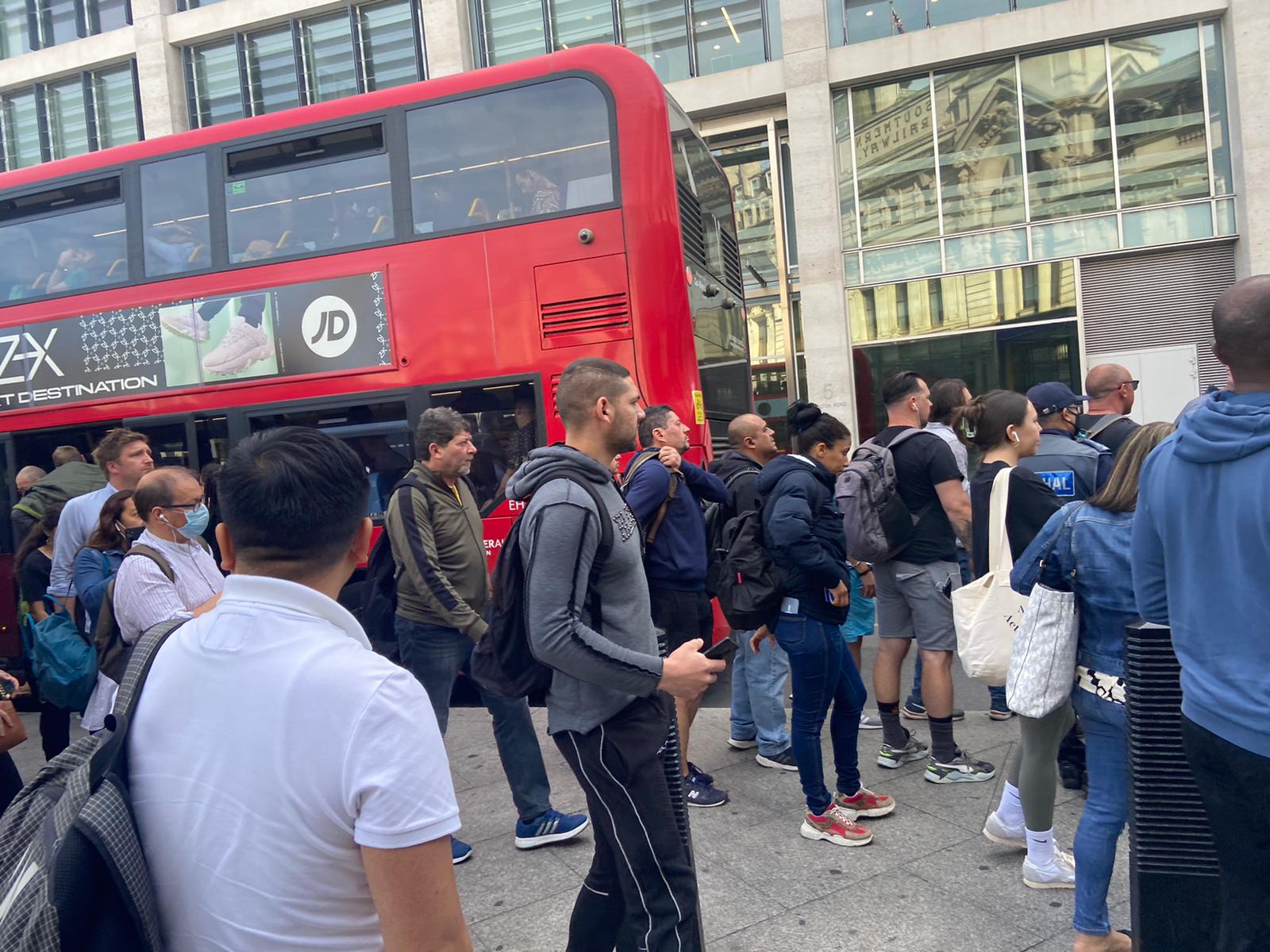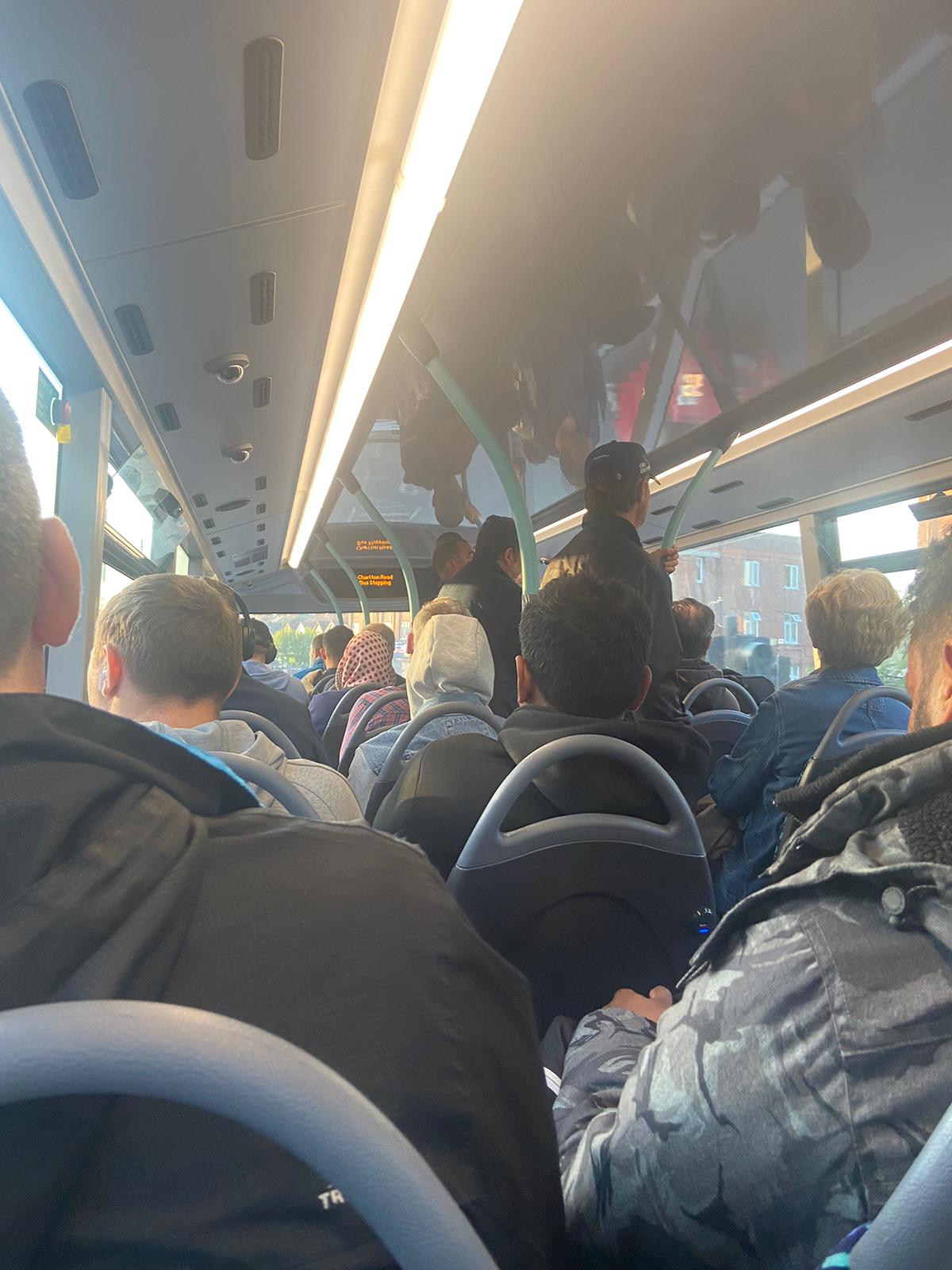‘It’s been horrible’: Commuter chaos as Londoners brave rail and Tube strikes to get to work
Workers face packed buses and long waits for limited train services as biggest rail strike in 30 years kicks off
Your support helps us to tell the story
From reproductive rights to climate change to Big Tech, The Independent is on the ground when the story is developing. Whether it's investigating the financials of Elon Musk's pro-Trump PAC or producing our latest documentary, 'The A Word', which shines a light on the American women fighting for reproductive rights, we know how important it is to parse out the facts from the messaging.
At such a critical moment in US history, we need reporters on the ground. Your donation allows us to keep sending journalists to speak to both sides of the story.
The Independent is trusted by Americans across the entire political spectrum. And unlike many other quality news outlets, we choose not to lock Americans out of our reporting and analysis with paywalls. We believe quality journalism should be available to everyone, paid for by those who can afford it.
Your support makes all the difference.Commuters faced the full force of travel chaos on Tuesday morning as they crammed into buses, waited hopelessly for trains and walked for miles in the hope of making it into work during Britain’s biggest rail strike in 30 years.
Victoria, Waterloo and Euston stations were almost empty on Tuesday morning with just a tiny fraction of the usual crowds waiting for a reduced train service as others turned to alternative means of getting into offices.
A Tube strike affecting almost the entire London Underground network meant usually quiet buses were packed. An Independent reporter journeying to Victoria and Waterloo found every seat on the double-decker 183 route from 5.30am filled.
‘Four buses drove past me’
For retail worker Kim Ramos, it meant walking an hour from Camberwell to Victoria station in the hope of catching a train to Marble Arch to make it to work on time.

“It’s been horrible this morning, it was so packed in south London, I couldn’t get on the bus. I’ve had to walk about an hour from Camberwell near Peckham to Victoria, I’m so tired, I’ve walked all this way,” she said.
“It’s always busy coming from south, the majority of people don’t drive, you have school kids, rush hour, four buses went past me.”
However, despite the frustration of travel disruption this morning Kim said she supports the rail strikers and would even join them on the picket line if she was a train worker.
“I don’t blame the people striking, they’ve had enough. I would do the same if I was in their shoes. I feel like train workers, doctors, they’ve all been overworked. During lockdown they worked the entire time.”
Hotel worker Francesco Alberazzi had a similar view. Although worried about his son travelling to school, he said he supported the strikes and said union action was about “striking a balance between the interests of community, the businesses and the workers”.
“I think people have a right to strike and it’s always difficult when it affects you personally, but I put myself in the shoes of the workers and I support them,” Francesco said.

Research assistant Ahmed Alalti started his journey from Oxford at 6am to make a 2pm meeting in central London. He said although several packed buses drove past him this morning, he also supports the strike action.
BJ Awosanya, a railway worker at Waterloo, smiled and greeted commuters as he shared leaflets explaining the strike action.
He said: “The government needs to come to the negotiating table. The cost of living is through the roof, we can’t afford our bills. The public needs to understand this is a fight for everyone. This isn’t just about us.

“The government is misleading the public, saying railway workers are earning £44,000. It’s all lies. If I was earning £44,000 I wouldn’t be here. Drivers may earn that, but it’s not only drivers who run the railway. We run the railway, it’s a collective effort.
“They keep talking about spending money on the railway, but this money is going to shareholders, not us.”
‘Some of us can’t work from home’
Some workers such as teachers, however, experienced a knock on-effect of the strikes impacting young people taking exams.
High school pastoral worker Andrea Morales said staff, including herself, were struggling to get in this morning and children sitting GCSE exams faced the uncertainty of whether their tests would go ahead as normal. Her 20-minute journey from Pimlico to St John’s Wood was stretching toward two hours today.
“A lot of people are able to work from home but that’s not the case for all of us. A lot of us are required to be in the destinations we work at so I work in a school and this morning we're having a lot of difficulty getting members of staff in and this morning we have people doing GCSEs so this will have a knock-on effect on everyone’s job this morning,” Andrea said.

She added that some parents were keeping their children at home today to avoid the travel chaos.

School teacher Emily Davis said the strikes were timed badly for students.
“Everyone’s entitled to express their opinion on situations but what I’m most concerned about is that a lot of kids have GCSEs and A-levels today. My students have [exams] this morning. If they did it on another week, that would have been fairer on the kids,” Emily said.
“A lot of the students are quite nervous, they’ve had to make other arrangements, rely on their parents to drop them off. It has been quite disruptive.
“They could have this conversation for a little bit longer to see what could have been done.”
Strikes will continue through the week on Thursday and Saturday and are also set to disrupt Glastonbury festival.

Join our commenting forum
Join thought-provoking conversations, follow other Independent readers and see their replies
Comments